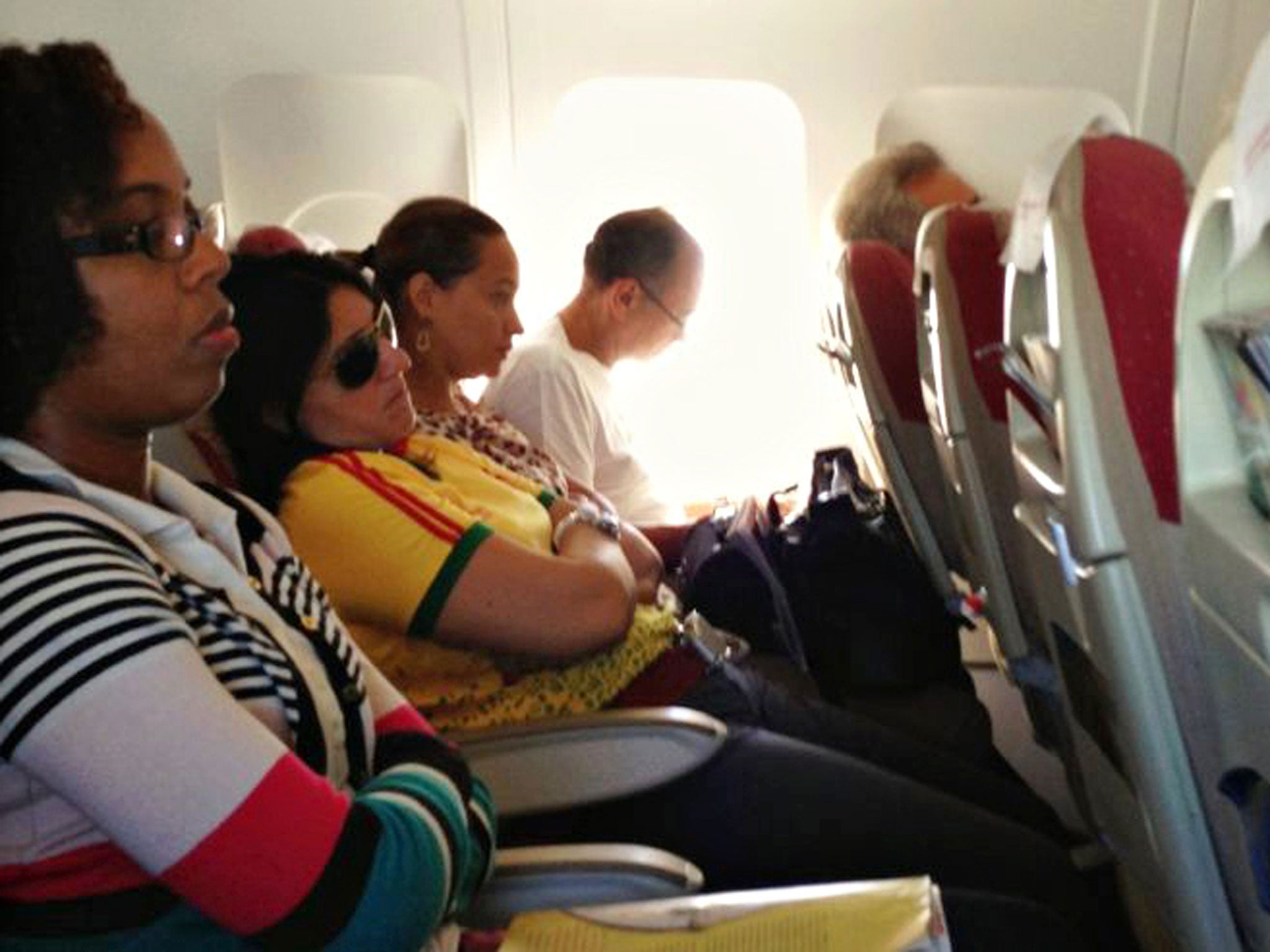Doors to automatic, iPad on
Air regulators are catching up with 21st-century reality

Your support helps us to tell the story
From reproductive rights to climate change to Big Tech, The Independent is on the ground when the story is developing. Whether it's investigating the financials of Elon Musk's pro-Trump PAC or producing our latest documentary, 'The A Word', which shines a light on the American women fighting for reproductive rights, we know how important it is to parse out the facts from the messaging.
At such a critical moment in US history, we need reporters on the ground. Your donation allows us to keep sending journalists to speak to both sides of the story.
The Independent is trusted by Americans across the entire political spectrum. And unlike many other quality news outlets, we choose not to lock Americans out of our reporting and analysis with paywalls. We believe quality journalism should be available to everyone, paid for by those who can afford it.
Your support makes all the difference.Airline passengers in Europe can look forward to more relaxing journeys. At present, the use of portable electronic devices (PEDs) is banned during critical stages of flight. But the European Aviation Safety Agency (EASA) this week has signalled a change of heart, allowing smartphones, tablets and e-readers to stay switched on. British Airways is first to relax its policy.
What do the current rules say?
For flights to, from, and within Europe, all personal electronic devices must be turned off when the plane is taxiing, taking off, flying below 10,000 feet, or landing. The ban covers tablet computers, e-readers, MP3 players and game consoles. These devices radiate small amounts of electro-magnetic energy. It was feared that if everyone on board used them simultaneously, they might interfere with control systems and endanger the aircraft. But in October, the US Federal Aviation Administration (FAA) concluded PEDs posed no risk. Europe's safety regulators are falling into line.
Starting today?
No, except on BA. Each airline must seek permission from its national regulator, showing it has robust practices for making sure the relaxation can be achieved safely. It will involve piecemeal implementation – you could be a passenger on an airline that allows it one day, and banned by a different airline the next.
Can I use devices 'from gate to gate'?
Not quite. Everyone must put down their devices during the safety briefing. Cabin crew may require large devices, such as a particularly beefy tablet computer, to be stowed during take-off and landing. And the ban on using headphones that are not connected to the aircraft's entertainment system will remain in force while the aircraft is moving on the ground. That is to ensure that a passenger can hear cabin-crew instructions in an emergency.
There is one other rare occasion in which you may be asked to switch devices off: during automatic landings in poor visibility. In such circumstances the aircraft is entirely dependent on signals sent from the ground, and regulators want to eliminate any danger of interference.
Such events are rare; the FAA says one landing in 100 is affected, but others say the proportion is even smaller.
Will I be able to make phone calls and send SMS messages?
No. The CAA states: "Scientific research has shown that mobile phones can interfere with the normal operation of aircraft equipment and can also cause interference in pilot's headsets." Every device with the capacity to transmit must remain in "Flight Safe" mode, with two exceptions. Some aircraft are fitted with satellite transceivers that allow mobile phone use above 10,000 feet; if you are on such a flight, the crew will let you know. And on British Airways, a special dispensation enables passengers to make calls and send texts after landing, once the aircraft has turned off the main runway and it is taxiing to the arrival gate. This is already normal practice in the US.
Join our commenting forum
Join thought-provoking conversations, follow other Independent readers and see their replies
Comments